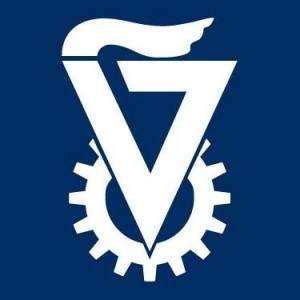Photos of university / #technion.israel
The Technion – Israel Institute of Technology (Hebrew: הטכניון – מכון טכנולוגי לישראל) is a public research university in Haifa, Israel. Established in 1912, the Technion is the oldest university in Israel. The university offers degrees in science and engineering, and related fields such as architecture, medicine, industrial management and education. It has 17 academic faculties, 52 research centers and 1 affiliated teaching hospital. Since its founding, it has awarded more than 100,000 degrees and its graduates are cited for providing the skills and education behind the creation and protection of the State of Israel.
The university's principal language of instruction is Hebrew. Choosing the language of instruction was the subject of a national debate in pre-Israel statehood that became an important milestone in the consolidation of Hebrew as the spoken language in the State of Israel.
Technion's 565 faculty members currently include three Nobel Laureates in chemistry. Four Nobel Laureates have been associated with the university.
The current president of the Technion is Prof. Peretz Lavie, who was ranked in 2012 by the Israeli national newspaper TheMarker as one of the country's 100 most influential people.[6]
The Technion is cited as one of the factors behind the growth of Israel's high-tech industry and innovation, such as the country's Silicon Wadi.
The Technion was conceived in the early 1900s by the German-Jewish fund Ezrah as a school of engineering and sciences. It was to be the only institution of higher learning in the then Ottoman Palestine, other than the Bezalel Academy of Art and Design in Jerusalem (founded in 1907). Its cornerstone was laid in 1912, and studies began 12 years later in 1924. The Technion was the venue for Israel's "battle of the languages," an intense debate over the language of instruction.
In 1923 Albert Einstein visited and planted the now-famous first palm tree, as an initiative of Nobel tradition. The first palm tree still stands today in front of the old Technion building in the Hadar neighborhood. Einstein founded the first Technion Society, and served as its president upon his return to Germany.
In 1925 British industrialist Alfred Mond, 1st Baron Melchett became the Technion's first president.
In 2012, the Shanghai Academic Ranking rated the Technion as 78th in its list of the top 100 universities in the world. Also in 2012, the magazine Business Insider ranked Technion among the top 25 engineering schools in the world.
In 2012, the Center for World University Rankings ranked Technion 51st in the world and third in Israel in its CWUR World University Rankings.
For national rankings in 2011, Technion was ranked the No. 2 of universities in Israel by ARWU. In global rankings for that year, Technion was ranked #102–150 by ARWU, No. 220 by QS,.
It was ranked #201–225 by Times Higher Education World University Rankings.
In 2013, the Technion was the only school outside of the United States to make it into the top 10 on a new Bloomberg Rankings list of schools whose graduates are CEOs of top U.S. tech companies.
